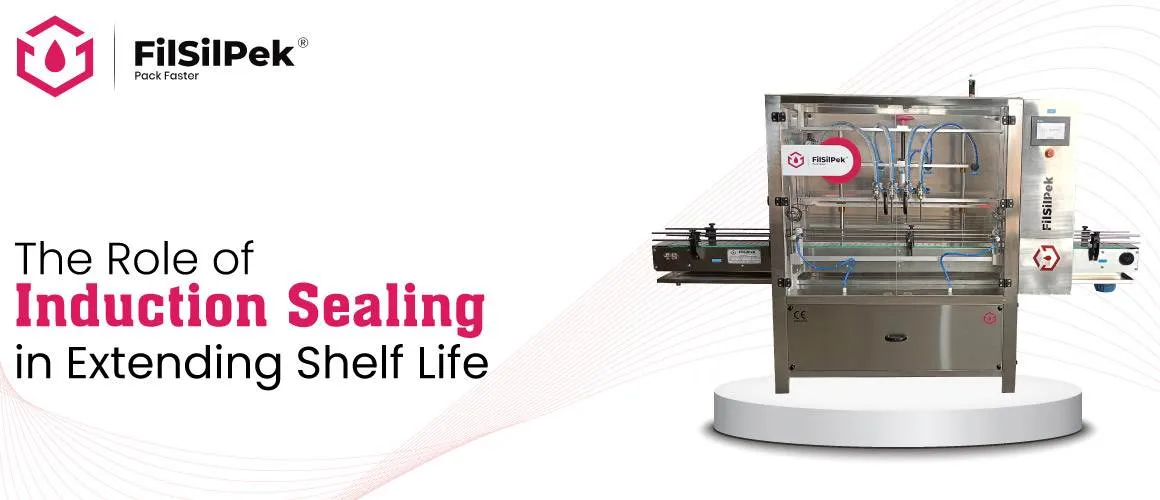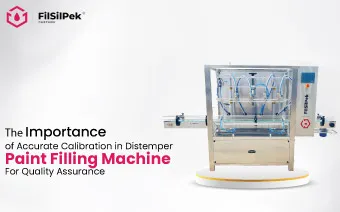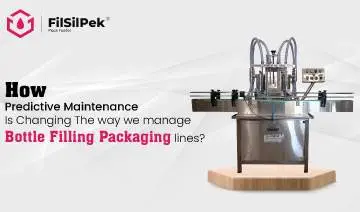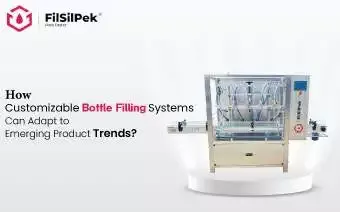The Role of Induction Sealing in Extending Shelf Life
In the food and pharmaceutical industries, packaging plays a key role in preserving product quality and extending shelf life. Among the many technologies available, induction sealing has become a crucial technique in securing containers, safeguarding contents, and maintaining freshness over extended periods. Here, we’ll explore how induction sealing contributes to shelf life, its applications, benefits, and the science behind the process.
What is Induction Sealing?
Induction sealing is a non-contact process that uses electromagnetic induction to bond a liner to the mouth of a container. This liner typically consists of layers including foil, paper, and wax, each carefully engineered to optimize the seal and protect the container’s contents. When an induction sealing machine is activated, an electromagnetic field generates heat that melts the adhesive layer on the liner, creating an airtight seal as it bonds with the container’s rim. This process prevents leaks, contamination, and oxidation, which are major factors in product degradation.
How Induction Sealing Extends Shelf Life?
- Barrier Against Contaminants: Induction seals act as a formidable barrier, keeping out external contaminants like dust, dirt, and moisture that can spoil food or pharmaceutical products. With an airtight seal, the risk of contamination reduces, ensuring that the product remains safe and fresh until it reaches the end-user.
- Oxidation Prevention: Many products, especially perishable items, suffer from oxidation, which deteriorates flavor, color, and nutritional value. The induction seal prevents air and oxygen from entering the container, reducing oxidation and slowing down the natural spoilage process.
- Preserving Moisture Levels: Certain products rely on stable moisture levels for quality preservation. For example, powdered products like coffee or baby formula are highly susceptible to moisture, which can clump the powder and ruin its consistency. The induction seal acts as a barrier, locking in the desired moisture level and protecting the product’s intended texture and usability.
- Tamper Evident Seals: Induction seals provide tamper-evidence, which is a clear indicator if the product has been opened or compromised. This safety feature is particularly important in pharmaceuticals, where any tampering could have serious health implications. For food products, tamper-evidence builds consumer confidence by ensuring the product has remained untouched and safe for consumption.
The Science Behind Induction Sealing
Induction sealing relies on electromagnetic fields generated by an induction coil within the sealing machine. When a container with a foil-lined cap passes under the coil, an electric current flows through the foil layer. This current, known as an eddy current, heats the foil and melts the adhesive layer, creating a solid bond with the container’s rim.
The sealing process occurs in seconds and is highly energy-efficient, with no direct contact between the machine and the container. Factors like foil thickness, seal layer composition, and cap liner structure are carefully calibrated to ensure each seal is durable and reliable. Advanced induction sealing equipment allows manufacturers to adjust sealing parameters, such as dwell time and energy levels, to match specific materials and container types.
Applications of Induction Sealing in Various Industries
Induction sealing has become essential across multiple industries, each utilizing its protective benefits:
- Food and Beverage Industry: Induction seals prevent spoilage by locking out air and moisture. This extends shelf life for products like sauces, dairy, juices, and dry goods. For carbonated drinks, induction seals help to maintain carbonation and prevent leaks.
- Pharmaceuticals and Nutraceuticals: In these industries, purity is paramount. Induction sealing protects sensitive medications, supplements, and vitamins from contamination and oxidation. The tamper-evident seal provides an added layer of security.
- Cosmetics and Personal Care Products: Cosmetics often contain sensitive ingredients that can degrade upon exposure to air. Induction sealing preserves product integrity by preventing contamination and prolonging the shelf life of creams, lotions, and serums.
- Chemical Products: Induction sealing ensures safe transportation of chemicals by creating a leak-proof barrier. This prevents chemical exposure to handlers and reduces product waste.
Key Advantages of Induction Sealing
- Enhanced Product Integrity: Induction seals help retain product freshness, flavor, and nutritional quality, which is especially valuable for consumables with limited shelf lives.
- Cost-Effectiveness: Though initial setup requires investment in machinery, induction sealing reduces waste by preserving product quality, which translates to cost savings over time.
- Versatile and Scalable: Induction sealing is compatible with various container materials like glass and plastic and can handle a broad range of product types. It’s suitable for both small-scale and large-scale production lines, making it versatile for manufacturers of different sizes.
- Environmentally Friendly: By minimizing spoilage and reducing waste, induction sealing contributes to sustainability efforts. Additionally, many induction liners are recyclable, and as technology advances, more eco-friendly materials are being introduced.
Best Practices for Effective Induction Sealing
To achieve optimal results and extend shelf life, manufacturers should consider these best practices:
- Choose the Right Liner Material: Not all liners offer the same barrier properties. Select liners that are suitable for the product’s sensitivity to air, moisture, and contaminants.
- Set Correct Parameters: Temperature, pressure, and dwell time must be precisely controlled to ensure a complete seal without damaging the container or product.
- Regularly Inspect Equipment: Equipment malfunctions can lead to improper seals and potential product contamination. Regular maintenance and calibration of induction sealing machines are crucial for consistent quality.
- Quality Control and Testing: Regular quality checks, including vacuum and pressure tests, help verify the integrity of each seal.
Putting it together
Induction sealing isn’t just about sealing—it’s about upgrading product quality and trust. With a secure, airtight barrier, it keeps products fresher, enhances shelf life and reassures consumers with tamper evidence.
Discover how induction sealing can transform your packaging. Connect with us at [email protected] to explore solutions crafted specifically for your product needs.
The Importance of Accurate Calibration in Distemper Paint Filling Machine for Quality Assurance
Quality assurance is essential for distemper..
How Predictive Maintenance Is Changing the Way We Manage Bottle Filling Packaging Lines?
The manufacturing industry is constantly evolving, and one area that’s seeing significant change……..
How Customizable Bottle Filling Systems Can Adapt to Emerging Product Trends?
Product and packaging trends are evolving rapidly across industries like food and beverage…



